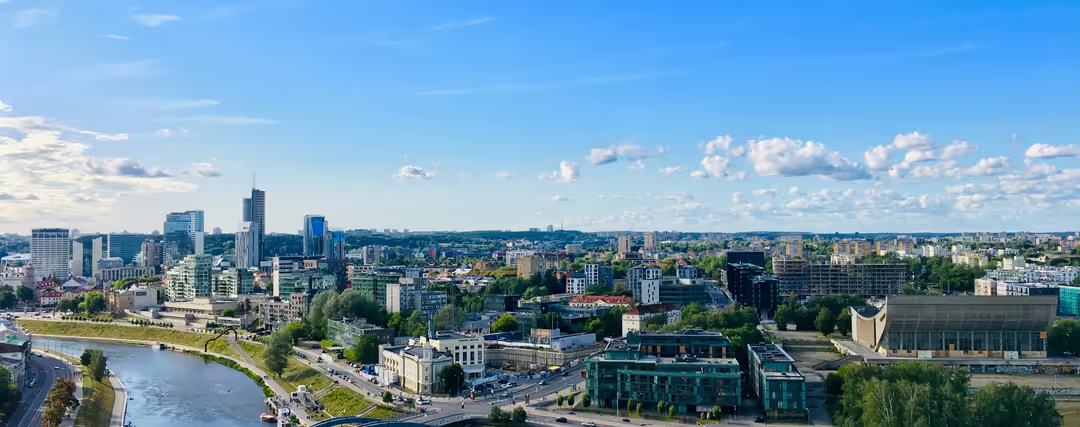

Are you going to do your Erasmus in Lithuania? In this article, you’ll find the most important information to take into account during your exchange. Information about the best cities to study in, options and requirements for international students, what to do during your stay in Lithuania, different accommodation alternatives, information about the best Universities, and more.
In Lithuania, several cities have gained popularity as Erasmus destinations. The capital, Vilnius, stands out as the country's academic and cultural epicentre, with its historic charm, cobblestone streets and architectural mix ranging from Gothic to Baroque. Kaunas, Lithuania's second-largest city, boasts an active student life and a growing arts scene, offering a balance of tradition and modernity. Klaipėda, located on the shores of the Baltic Sea, combines the vitality of a port city with the serenity of the coast.
Lithuania has a rich cultural history and heritage that’s reflected in its architecture, traditions and festivals. The opportunity to immerse yourself in a different culture and appreciate European history from a Baltic perspective is a unique experience.
Compared to other European destinations, the cost of living in Lithuania is usually more affordable. This is going to allow you to enjoy the experience to the fullest, being able to travel, eat out, party and do all the activities you feel like while you’re there.
Although Lithuanian is the official language, English is widely spoken in academic and professional environments. Take advantage of this to gain fluency in this language! It's going to be a great advantage on a personal and professional level. However, it would also be nice to learn some Lithuanian to be able to communicate with the locals.
University cities, such as Vilnius and Kaunas, are home to lively student communities. Thanks to this, you’ll be able to enjoy an active student life, as well as a wide variety of cultural and social events.
Finally, we’d like to emphasise that Lithuania has experienced significant growth in the technology and innovation sector in recent years, so, if you study a career in this field, you’ll be able to benefit from this.
When studying in Lithuania, you can't miss exploring Vilnius, the capital. Visit the Old Town, a UNESCO World Heritage Site, where cobblestone streets lead you to Vilnius Cathedral and the Gediminas Tower. Immerse yourself in Lithuanian history at the Lithuanian National Museum and the Museum of Occupations and Freedom Fights, which occupy a former site of Soviet repression.
Kaunas, Lithuania's second-largest city, is known for its vibrant student life. Explore City Hall Square, where you'll find cafes and cultural events throughout the year. Don't miss Kaunas Castle and the M.K. Čiurlionis Museum, which displays works by the famous Lithuanian symbolist painter.
If you’re a sports lover, you should know that Lithuania is passionate about basketball. Watching a local league game can give you an exciting experience and an insight into the country's sporting culture.
As for nature, the Heart of the Baltic offers breathtaking scenery, from vast forests to the shores of the Baltic Sea. If you want to surround yourself with greenery, explore the Aukštaitija National Park, known for its crystal-clear lakes and dense forests. Here you can hike, practice water sports and connect with nature. If beaches are your thing, you have to visit places like Klaipėda. Stroll along the coast, visit the Klaipėda Aquarium and discover the maritime charm of the old town. During the summer, Lithuanian beaches, such as Palanga, offer a relaxing escape.
Find the ideal accommodation in your desired location